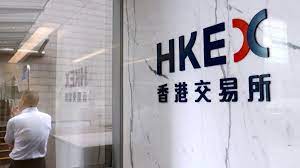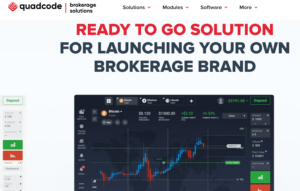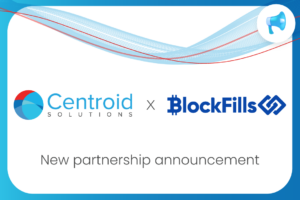CBOE doubles down on its attempts to attract the retail OTC traders again
Firms in the OTC sector should not view this as a rivalry, and nor should derivatives venues view OTC firms that way. Instead, it should be considered a synergy that is likely to bring the established and highly trusted listed products within reach of the retail traders

Lobbying attempts in which regulators have been pushed to curtail the methods by which retail OTC firms provide their products, very high value mergers and acquisitions and attempts to portray retail FX firms as lower down the electronic trading pecking order are three long running methods being used by large derivatives exchanges in order to obtain a piece of the retail trading pie.
Back in 2017, exchanges spent hundreds of millions acquiring FX firms and lobbying regulators to try to trip up the CFD companies. Now, the exchanges are nowhere to be seen and the FX brokers are doing good business, signaling a renaissance for OTC trading 2020 may well have been something of a blur, however one thing that has been overlooked and consigned to the annuls of memory is the attempt a few years ago by large global exchanges to lobby the regulators and acquire non bank FX market makers in order to force retail FX onto exchanges.
The recent history of many large exchange technology companies and listed derivatives marketplaces is enough to sway learned opinion in that direction too.
Now, CBOE, one of Chicago’s most established venues, has unveiled plans to launch trading in Mini-Russell 2000® Index options on Cboe Options Exchange beginning Monday, March 1, pending regulatory approval.
The introduction of these options smacks of angling products toward smaller retail traders, a direction CBOE has wanted to go down since the major attempts by its derivative venue peers five years ago.
New Mini-Russell 2000 Index options (ticker symbol: MRUT) are designed to provide direct exposure to the Russell 2000 Index in a more manageably sized and cost-effective contract. The mini options will share the same contract terms as standard Russell 2000 Index options (ticker symbol: RUT) but will be one-tenth the size of the standard contract, making them comparable to ETF options that similarly provide U.S. small-cap equity exposure. With a smaller notional value, Mini-Russell 2000 Index options help to offer investors potentially greater flexibility and precision when managing U.S. small-cap equity market risk or allocating among accounts.
The creation of the mini contract follows Cboe’s success with standard Russell 2000 options – one of the five most liquid cash-settled equity index options listed in the U.S. – and will provide investors with additional tools to execute their U.S. small-cap equity trading strategies. With the launch of Mini-Russell 2000 Index options, Cboe also continues to expand its offerings of tradable index products that feature a mini contract, including Mini Cboe Volatility Index futures (ticker symbol: VXM) and Mini S&P 500 Index options (ticker symbol: XSP), designed to appeal to a wide range of investors, including sophisticated retail traders seeking to hedge or gain exposure to the broad U.S. equity markets.
Arianne Criqui, Head of Derivatives and Global Client Services at Cboe Global Markets, said: “The Russell 2000 Index continues to be one of the most widely followed U.S. small cap benchmarks, and we are pleased to extend its utility to a broader universe of investors by offering Mini-Russell 2000 Index options. Delivering the features of index options trading in a more manageably sized and flexible vehicle, Mini-Russell options could serve as an alternative to comparable ETF options and a valuable tool for investors to potentially increase yields and hedge risks efficiently.”
Cboe expects the utility of Mini-Russell 2000 Index options to help meet the investment needs of a wide base of market participants, ranging from new index options traders and sophisticated retail traders managing an individual portfolio, to small- and mid-sized institutional investors seeking to execute small-cap options-based strategies. Similar to standard Russell options, Mini-Russell 2000 Index options will be structured as European-style options (no early exercise) and cash-settled (no unwanted delivery or assignment of shares) at expiration with P.M. settlement.
The Russell 2000 Index is the world’s premier benchmark measuring the performance of the small-cap segment of the U.S. stock market. Standard monthly options tracking the Russell 2000 Index were first offered at Cboe in 1992. In 2020, average daily volumes for Russell 2000 Index options traded at Cboe were approximately 34,000 contracts with total open interest standing at over 600,000 contracts.
In Chicago in 2016, FinanceFeeds met with CBOE whose executives demonstrated a new product which was certainly part of the remit of the firm to woo retail traders.
CBOE LIVEVOL has exclusively revealed that it is launching a brand new website next week, under the name Data Shop.
Catherine Clay, CBOE LIVEVOL’s VP Business Development spoke to FinanceFeeds to explain how the new site revolutionizes the method by which all traders can now obtain data, and the top level institutional information is now on its way to the retail trader.
Ms. Clay explained at the time “Next week we are going to launch a new market data website called Data Shop where we are offering clients the ability to customize an historical data set or data subscription with an Amazon-like shopping experience.”
“The client can go online, create an account, customize in fine detail, pay for orders and receive an automated instruction on where to collect their data” she enthused. “All orders will be remembered, as will shopping behavior, and therefore it streamlines their shopping experience, in a similar way to how today’s consumers are used to this methodology with e-commerce sites such as Amazon.”
CME Group’s 2017 investigation into the possibility of embarking on a project in which it provides a rolling spot contract is another case in point, as that would position it as a direct competitor to OTC derivatives companies.
Then there was the acquisition by Deutsche Boerse in July 2015 of FX trading platform 360T for $796 million. Now Deutsche Boerse is embroiled in its fraught merger with the London Stock Exchange, which has been deemed monopolistic by the European Commission, however that will proceed due to the imminent sale of LCH SA, the European division of LSE’s clearing division LCH.Clearnet as a condition of the transaction, whose buyers will be its largest customer.
Hotspot FX, one of the world’s most renowned OTC FX ECNs was bought by BATS Global Markets for $365 million in January 2015. It is also important to look at EUREX’s direction in which by September this year, the venue had extended its listed FX Futures and Options portfolio to include six new currency pairs while the overall minimum block trade sizes was reduced across all currency pairs to further improve hedging opportunities.
At that time, the idea was to increase Deutsche Boerse’s positioning in the provision of pre-trade price transparency in the derivatives area for institutional investors and taking an initial footprint in the FX derivatives space. An investment agreement was signed in December 2016, whereby Deutsche Börse will pay a US dollar amount in the single digit million range.
FinanceFeeds was also aware at that time that this has been a focus for Deutsche Boerse for some time. Back in 2011, Deutsche Boerse took a minority stake in British FX technology solutions provider Digital Vega which was a technology vendor to buyside and sellside firms in the OTC derivatives sector.
EUREX bought the 360T treasury system, with the intention of moving the entire FX structure from an OTC bilateral system into an exchange clearing structure in my view. Another example of equity exchanges moving into FX was NASDAQ which wanted to launch NASDAQ FX but were unable to do so as they failed to understand the nuances of liquidty provision in an OTC trading environment vs the exchange traded products dynamics.
More recently, it became clear that the OTC world is still very much in the sight of the exchanges, Luxembourg Stock Exchange investing in British bond issuance platform Origin, alongside fellow investor Clearstream.
Unlike shares of a company that trade on stock exchanges, most corporate bonds trade over-the-counter (OTC) Since they are not listed on major exchanges, investors must look to their brokers to arrange the purchase and sale of bonds in many cases hence here we go again with the listed derivatives leviathans attempting to get into the OTC sector via the back door.
Founded in 2015, Origin helps dealers and issuers streamline the issuance process and is currently used by over 20 dealers and 90 issuers across 50 cities worldwide.
The company says it will work with Clearstream and LuxSE on the creation of an an end-to-end, open access, straight-through digital process for issuance, settlement and listing of debt instruments, beginning with Eurobonds.
Firms in the OTC sector should not view this as a rivalry, and nor should derivatives venues view OTC firms that way. Instead, it should be considered a synergy that is likely to bring the established and highly trusted listed products within reach of the retail traders, meaning that now is the time to embrace the multi-asset product capability via your platform.
Most certainly there is a necessity for all FX brokers to be able to offer multi product connectivity to global markets, and in doing so they will not only attract a far higher caliber of client with a far longer lifetime value, but also stave off the regulatory coercion that is being directed toward CFD firms and open up a potential business synergy with exchanges.
This has to be the way forward.









